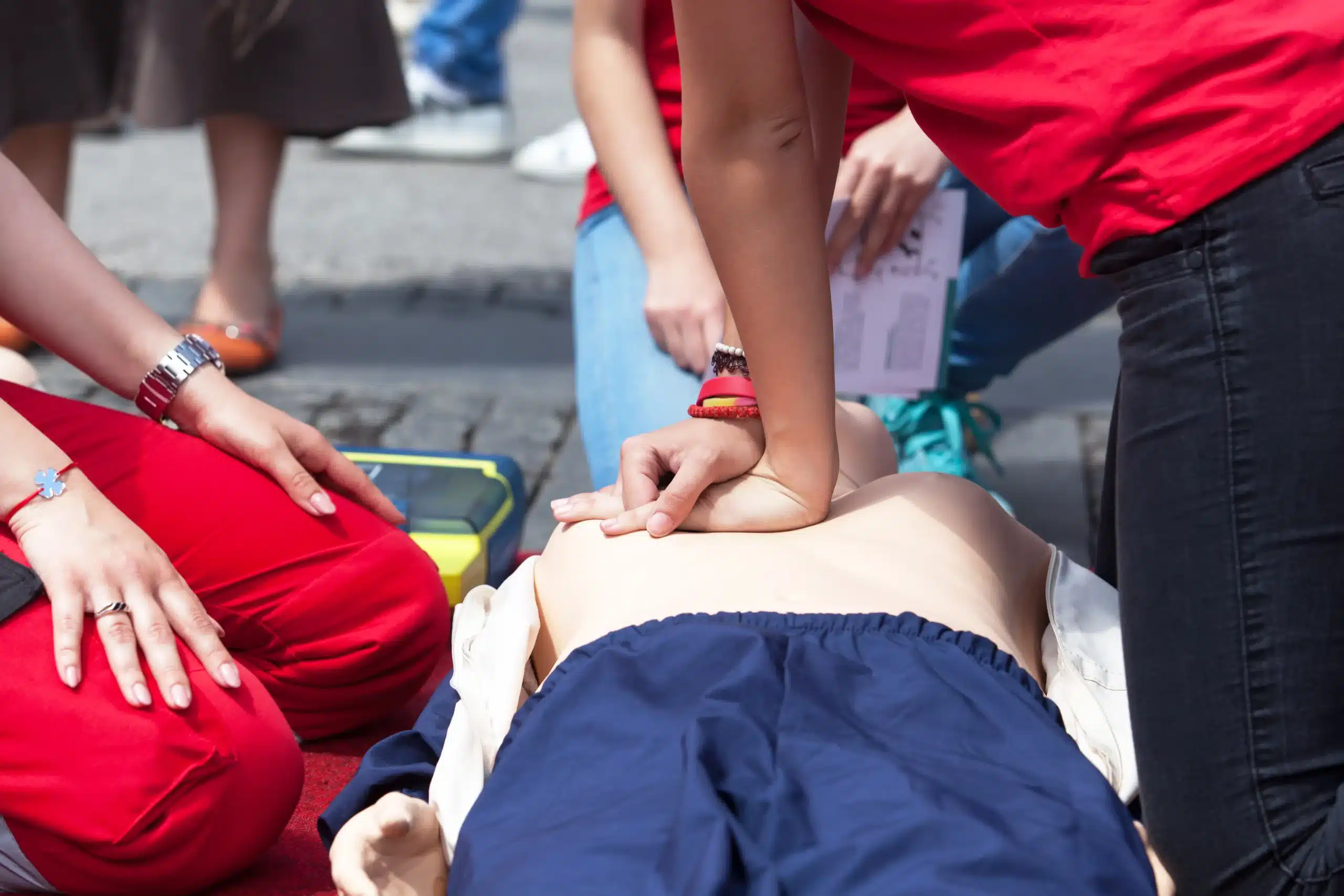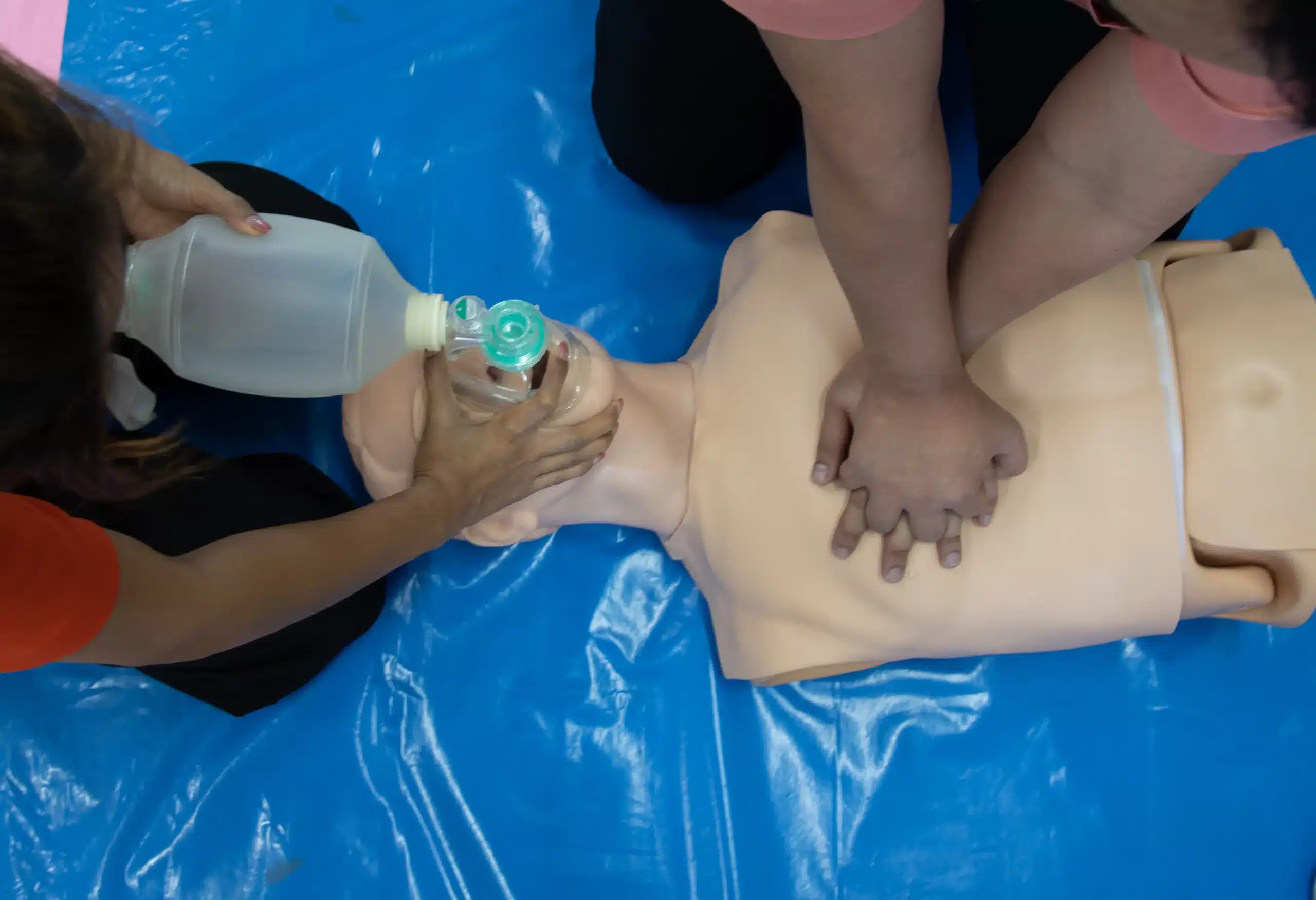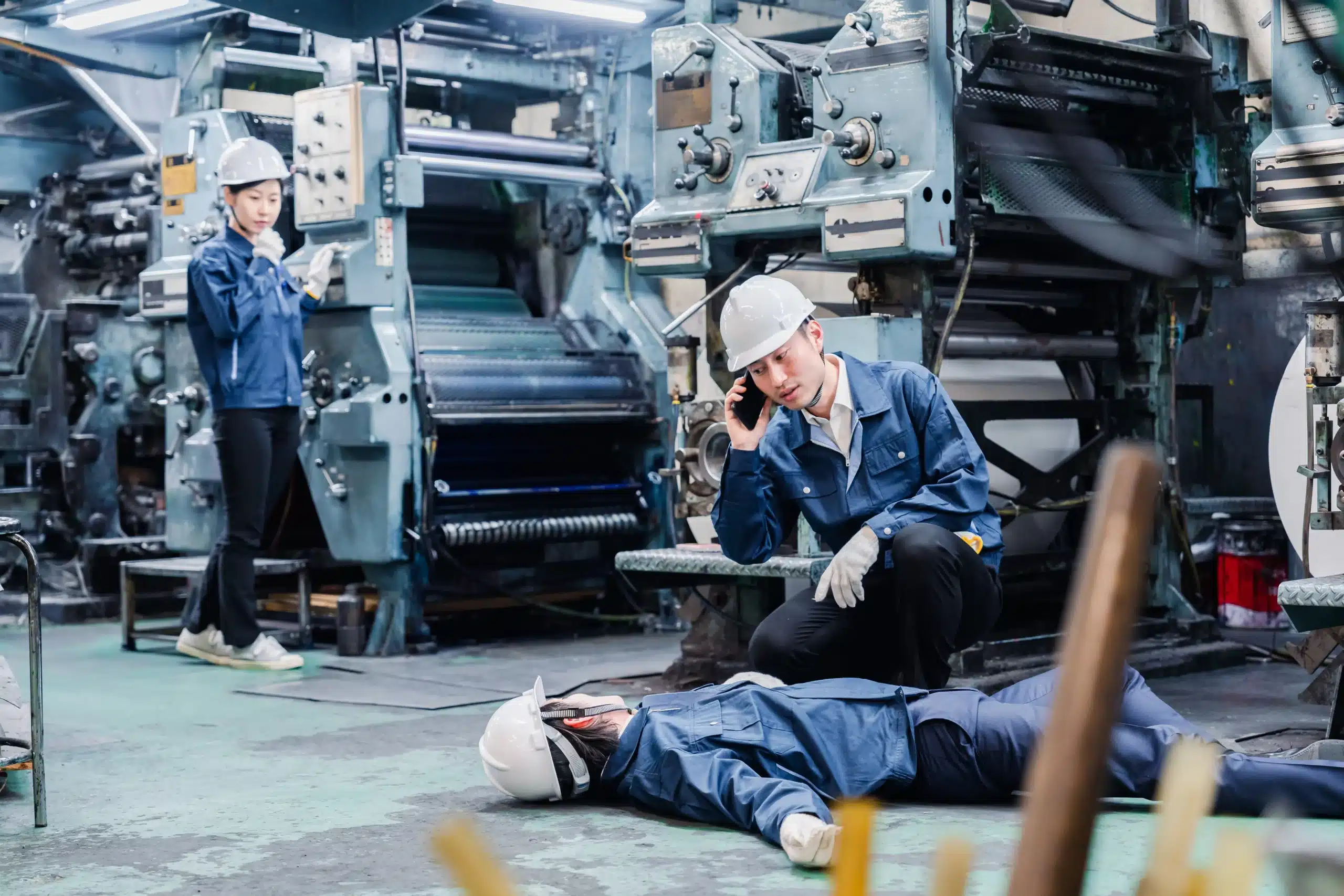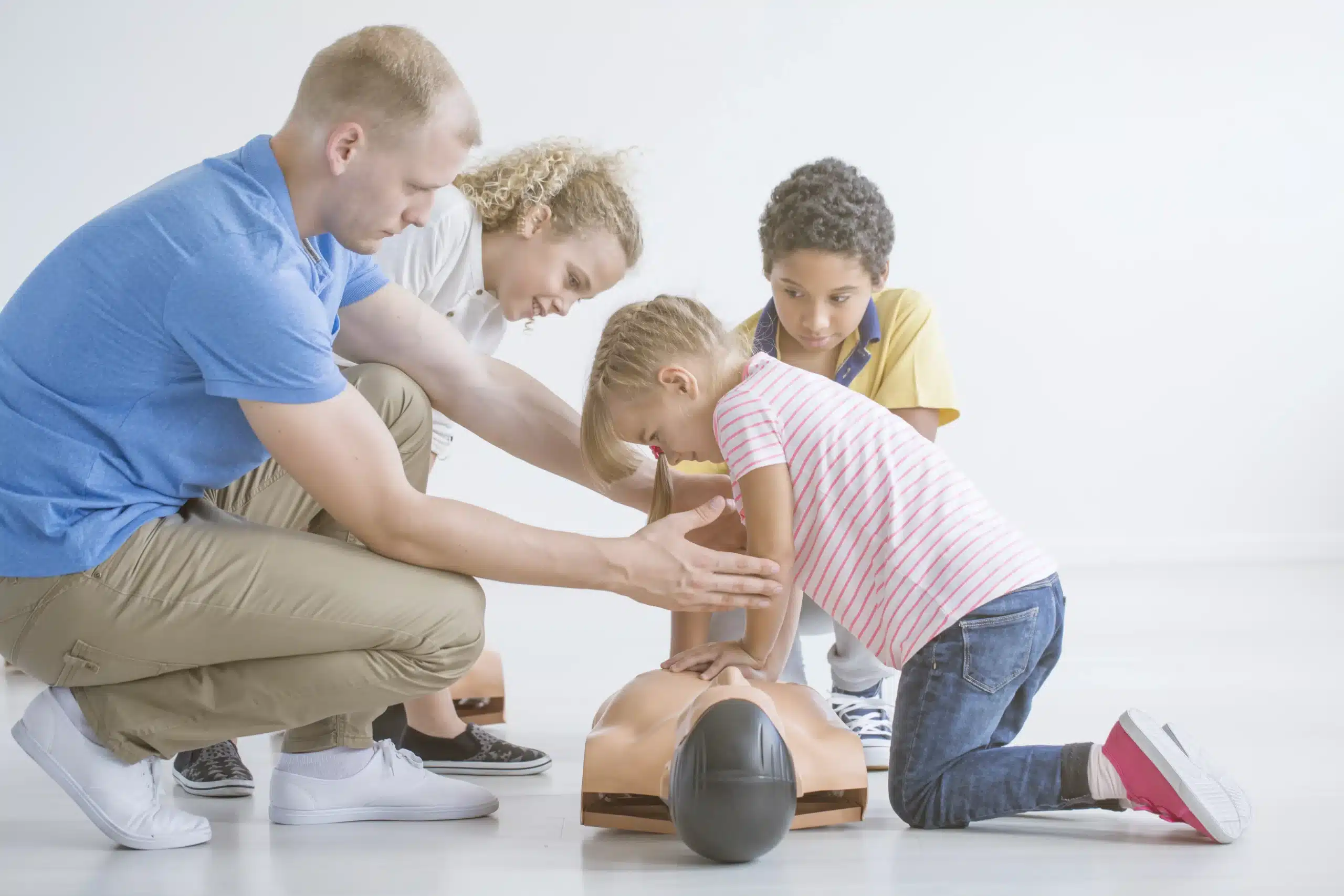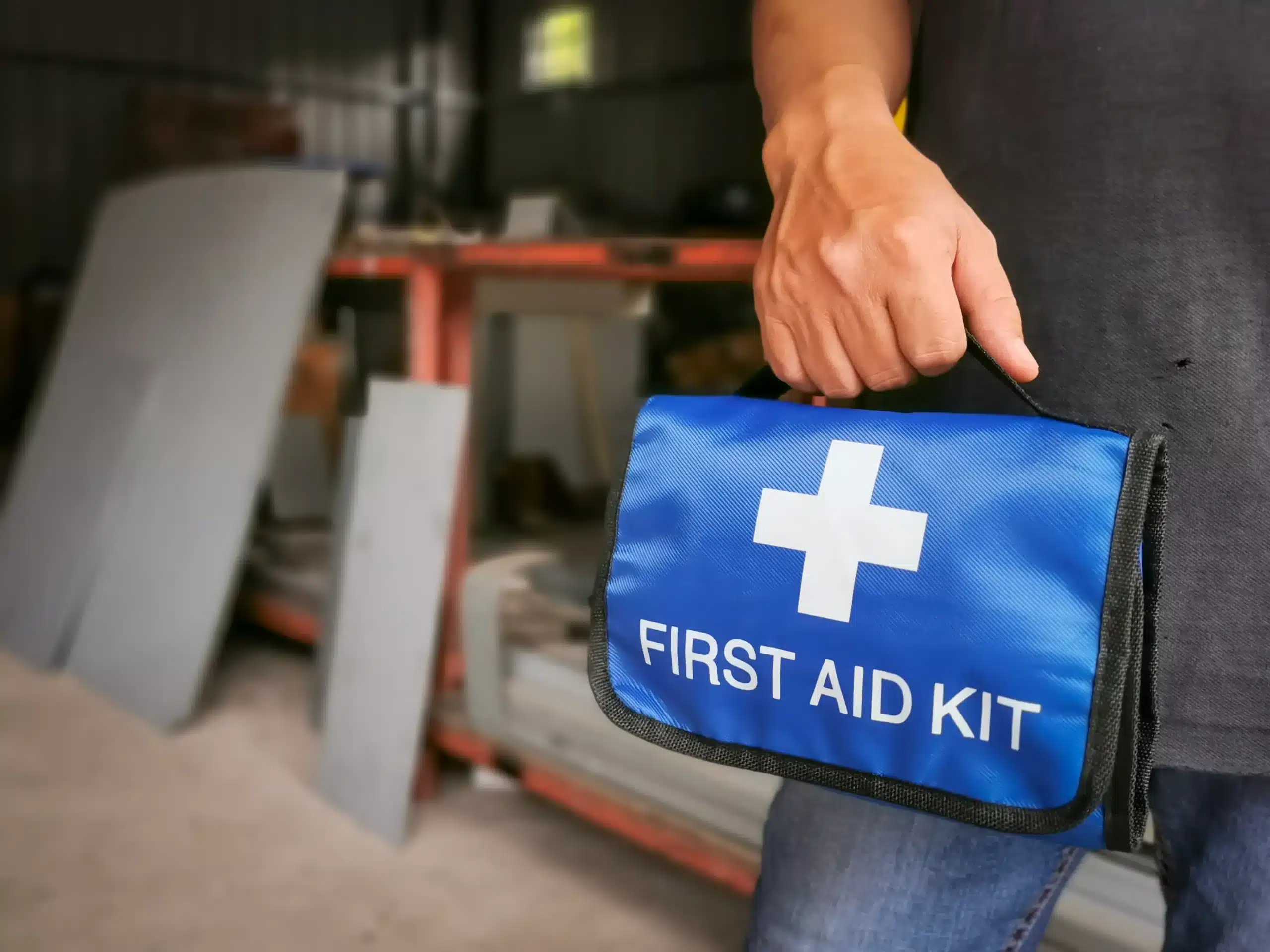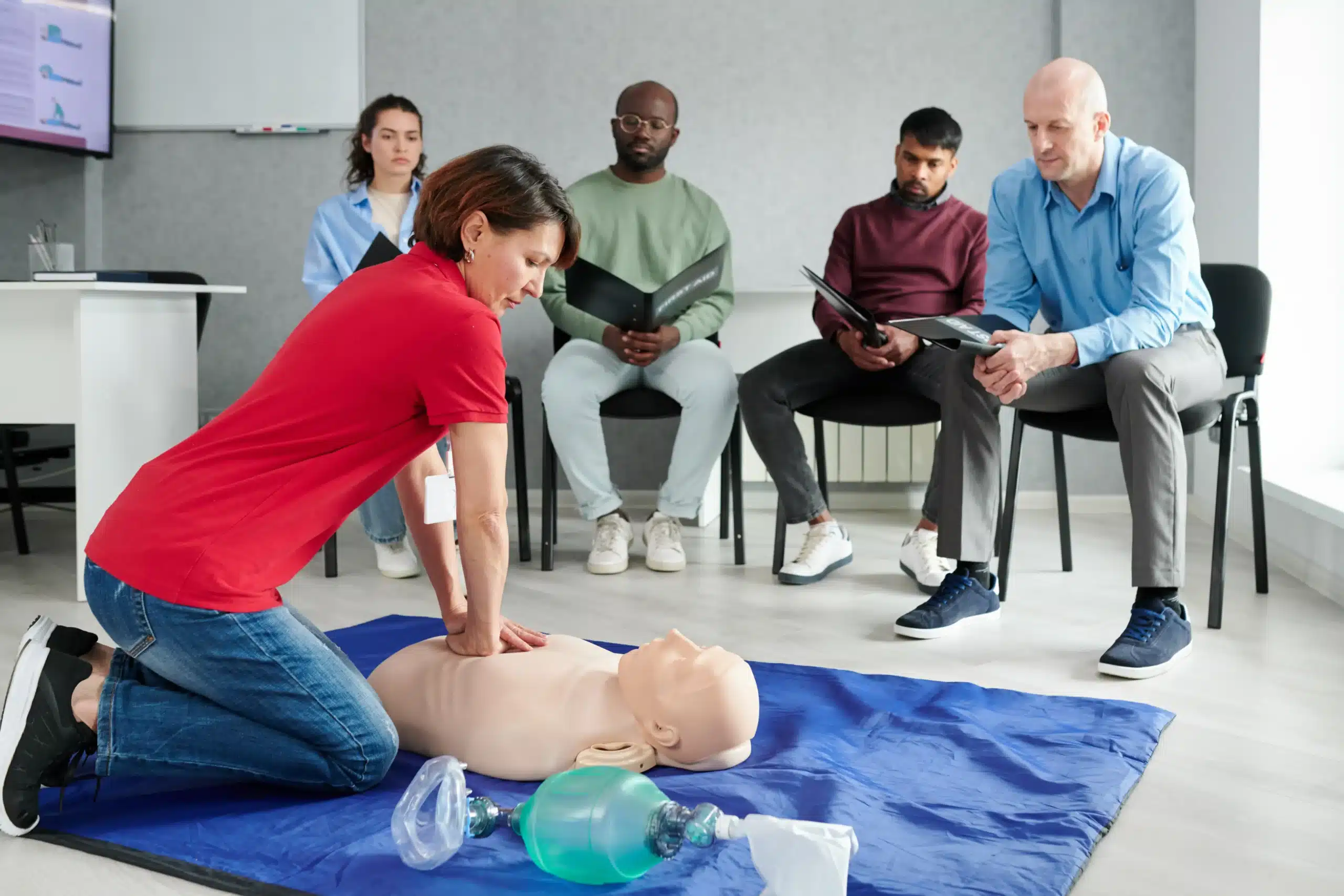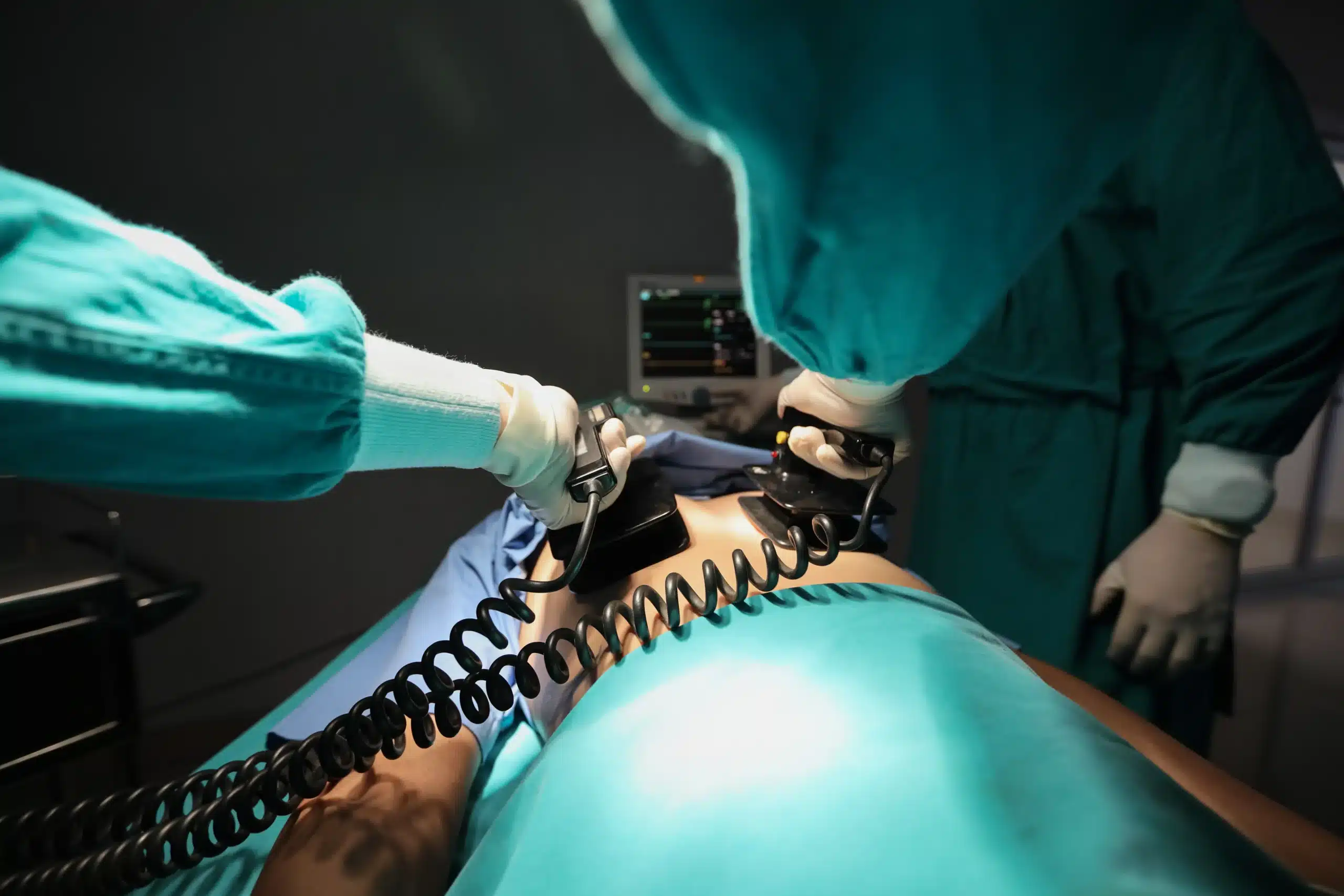Empower yourself with the life-saving skills of CPR. This comprehensive guide is your go-to resource for finding CPR classes in San Jose. We’ll explore various options, including those offered by Sunnyvale CPR Classes, known for their affordable prices and convenient location serving Sunnyvale, Santa Clara, and San Jose. Whether you’re a medical student, a concerned parent, or simply someone who wants to make a difference, this guide will walk you through the process of getting CPR certified. We’ll cover everything from the basics of CPR to choosing the right class format and understanding certification requirements. Let’s get started on your journey to becoming a confident and prepared lifesaver.
Key Takeaways
- CPR knowledge empowers you to save lives: Equipping yourself with CPR skills enables effective emergency response, drastically increasing survival odds during cardiac arrest. Find a course that suits your needs, whether for professional healthcare or personal preparedness.
- Select the right CPR class for your goals: Consider factors like cost, location, course content, and instructor experience. Prioritize hands-on training and choose a convenient learning format (in-person, blended, or online). Sunnyvale CPR Classes offers a range of affordable options.
- Regularly refresh your CPR skills: Staying current with the latest guidelines ensures you’re always prepared. Leverage online resources, mobile apps, and refresher courses to maintain your life-saving abilities.
What is CPR and Why is it Important?
CPR (Cardiopulmonary Resuscitation) is a life-saving technique used in emergencies when someone’s breathing or heartbeat has stopped. It involves chest compressions and rescue breaths that circulate oxygenated blood to the brain and other vital organs. Learning CPR empowers you to provide immediate assistance in these critical situations, bridging the gap until professional medical help arrives, significantly increasing the chances of survival. Learn more about how to get your CPR certification in San Jose.
Debunking Common CPR Myths
Several myths surrounding CPR can discourage people from learning this essential skill. Let’s address some of these misconceptions:
-
Myth 1: CPR alone can restart a stopped heart. While CPR is crucial for maintaining blood flow, it rarely restarts a heart on its own. Its primary function is to keep vital organs oxygenated until advanced medical intervention, like defibrillation, can be administered. Get the facts about CPR.
-
Myth 2: You might cause serious harm by performing CPR. It’s natural to feel apprehensive about potentially causing harm, but the risks of inaction are far greater. The alternative to performing CPR is allowing someone to succumb to cardiac arrest. Quality CPR training equips you with the knowledge and skills to perform CPR safely and effectively.
-
Myth 3: CPR is only for medical professionals. Anyone can learn CPR, regardless of their background. Bystander CPR is often the first link in the chain of survival. Find a CPR class near you and become equipped with this life-saving skill.
The Impact of Bystander CPR
Bystander CPR plays a vital role in improving survival rates for people experiencing cardiac arrest. Studies show that effective bystander CPR can double or even triple a person’s chances of survival. Read more about the impact of bystander CPR. Every year, countless lives are lost to sudden cardiac arrest, and bystander CPR can be the difference between life and death. CPR training provides the skills and confidence to act quickly and effectively in these emergencies, keeping oxygen flowing to vital organs until professional help arrives.
CPR Classes in San Jose: What are Your Options?
Deciding which CPR class is right for you depends on your specific needs and goals. San Jose offers a variety of courses, ranging from basic life support for the community to advanced training for healthcare professionals. Let’s break down the most common options:
Basic Life Support (BLS)
BLS certification courses provide the foundational knowledge and skills to respond to life-threatening emergencies. You’ll learn how to perform high-quality CPR for adults, children, and infants, use an AED, and provide relief for choking victims. BLS certification is a good fit for healthcare providers, first responders, and anyone who wants to be prepared to help in a crisis. Even if you’re not in a medical field, having BLS training can give you the confidence to act in an emergency. Group discounts are often available, making it even more accessible.
Advanced Cardiac Life Support (ACLS)
ACLS training is designed for healthcare professionals who manage cardiac arrest and other cardiovascular emergencies. Building upon the skills learned in BLS, ACLS covers advanced airway management, pharmacology, and team dynamics during resuscitation. This certification is essential for doctors, nurses, paramedics, and other healthcare providers who work in critical care settings. Check with your employer to see if they offer ACLS training or if they can connect you with resources.
Pediatric Advanced Life Support (PALS)
Specifically geared towards healthcare providers who care for infants and children, PALS certification focuses on the specialized needs of pediatric patients during emergencies. This course teaches effective assessment, resuscitation, and stabilization techniques for young children and infants. Like ACLS, PALS is crucial for pediatricians, nurses, paramedics, and other healthcare professionals working in emergency or critical care settings. PALS providers need to stay up-to-date on the latest guidelines for pediatric care.
First Aid and CPR Combination Courses
Combining first aid and CPR training offers a well-rounded approach to emergency preparedness. These courses cover a wider range of situations, from treating minor injuries like cuts and burns to responding to serious medical emergencies like heart attacks and strokes. This combination is a practical choice for anyone who wants to be equipped to handle a variety of emergency situations, whether at home, in the workplace, or out in the community. Many organizations, including workplaces and community groups, prefer this comprehensive approach. Consider a combined course to gain a broader skillset and be prepared for various scenarios.
Where to Find CPR Classes in San Jose
Finding the right CPR class can feel overwhelming, but several reputable organizations and institutions offer training in San Jose and the surrounding areas. Here’s a breakdown to help you start your search:
Sunnyvale CPR Classes (Safety Training Seminars)
If you’re looking for affordable, high-quality CPR training, check out Sunnyvale CPR Classes, offered by Safety Training Seminars. They offer a range of courses, making it easy to find one that fits your needs and schedule. Their convenient Sunnyvale location serves residents of Sunnyvale, Santa Clara, and San Jose. Plus, they have a low price guarantee for Santa Clara County.
American Red Cross
The American Red Cross is a well-known provider of CPR and first aid training. Their San Jose location offers various learning formats, including in-person classes and blended Simulation Learning, which combines online coursework with in-person skill demonstrations.
Local Hospitals and Medical Centers
Many hospitals and medical centers in San Jose offer CPR certification courses. These courses often cater to both healthcare professionals seeking BLS certification and the general public. Check with hospitals in your area to find courses that meet your requirements.
Community Colleges and Training Centers
Community colleges and training centers are another excellent resource for CPR certification. Safety Training Seminars offers various CPR and first aid classes in San Jose. These institutions often provide various courses, including specialized certifications. Contact local colleges and training centers to explore their offerings.
Costs, Formats, and Time Commitment
CPR and first-aid training are valuable investments, and understanding the costs, available formats, and time commitment involved will help you choose the right course. Let’s break down what you can expect.
Average Price Range and Group Discounts
The cost of CPR certification varies depending on the level of training and the provider. You’ll find competitive pricing at Safety Training Seminars in Sunnyvale, and they even offer a low-price guarantee for Santa Clara County. Many providers, including Safety Training Seminars, offer discounts for groups, which is a great option if you’re signing up with friends, family, or colleagues.
In-Person, Online, and Blended Learning
CPR classes are offered in several formats to fit your learning style and schedule. Traditional in-person classes provide hands-on instruction and direct interaction with a certified instructor. Blended learning combines online coursework with in-person skills sessions, offering flexibility while still ensuring you get the practical training you need. Some providers offer online CPR and first-aid training, though it’s important to confirm whether these meet all requirements for your specific needs, as hands-on practice is essential for effective CPR.
Time Commitment for Different Courses
The time commitment for CPR training depends on the type of certification you’re pursuing. A basic CPR course typically takes a few hours, covering essential life-saving techniques. More advanced certifications, such as BLS for healthcare providers or ACLS, require a more significant time investment, often ranging from four to eight hours or longer. Consider your schedule and the depth of training required when selecting a course. For healthcare professionals needing to maintain their skills, the RQI program offers a flexible, convenient way to stay up-to-date.
CPR Certification: Validity and Renewal
How Long is CPR Certification Valid?
CPR certifications are typically valid for two years. Knowing your certification’s expiration date is crucial for ensuring you’re always prepared to help in an emergency. Staying current with your skills provides confidence and peace of mind, allowing you to react effectively when needed. Regularly checking your card and noting the renewal date is a simple way to maintain your preparedness. Sunnyvale CPR Classes offers two-year certifications, in line with industry standards. Learn more about our certification process on our low price guarantee page.
Renewing Your Certification: Requirements and Skill Maintenance
Before your certification expires, sign up for a renewal course to refresh your skills and learn the latest guidelines. These courses are streamlined, focusing on essential techniques and updates to make staying certified easy. For healthcare providers, maintaining certifications like BLS, ACLS, or PALS is often a job requirement. Even if it’s not required for your job, staying up-to-date shows your dedication to providing effective care. Consider registering for a discount group class with friends or colleagues to make recertification more affordable and interactive. Healthcare providers looking to renew their RQI certification can find details on our RQI page.
Choose the Right CPR Class
Finding the right CPR class means understanding your needs, comparing courses, and prioritizing hands-on learning. Taking the time to do your research beforehand ensures you get the most from your training.
Assess Your Needs
Before you begin searching for CPR classes, think about your specific requirements. Do you need BLS certification for your profession, or are you simply seeking a general CPR/First Aid course for personal knowledge? Consider your learning style, too. Do you learn best through in-person instruction, online modules, or a combination of both? Finally, factor in your availability. Do you require a weekday class, a weekend option, or an accelerated program? Sunnyvale CPR Classes offers a range of schedules to fit busy lifestyles.
Compare Course Content and Instructors
CPR classes vary in their content and instructors. It’s essential to compare these factors before signing up. Healthcare providers often require BLS, ACLS, or PALS certification from the American Heart Association. Seek out courses led by experienced, certified instructors who can offer individual guidance and answer your questions thoroughly. Safety Training Seminars is known for its small class sizes, creating a more interactive learning environment.
Find Hands-On Training
Hands-on training is essential for building the muscle memory and confidence to perform CPR effectively in a real emergency. Prioritize classes that incorporate practice on CPR training mannequins. This type of training allows you to get a feel for the correct depth and placement of compressions. In-person instruction also gives you the chance to ask questions and receive immediate feedback. Red Cross classes frequently highlight this hands-on method, and it’s a valuable feature to look for in any CPR course. Mastering the right techniques through hands-on practice is key to providing effective assistance when it matters most.
Get Ready for Your CPR Class
So, you’ve decided to take a CPR class—fantastic! Knowing what to expect can help you feel prepared and confident. This section covers training, what to bring, and how to get the most out of your learning experience.
What to Expect During Training
CPR classes blend theory and hands-on practice. Expect expert instructors who create a comfortable learning environment. Classes are typically small, which allows instructors to answer your questions and provide personalized feedback. You’ll learn the steps of CPR, how to recognize the signs of a cardiac emergency, and how to respond effectively. Hands-on training is a critical part of any CPR class, giving you the chance to practice on mannequins and build muscle memory. The length of your CPR class will depend on the type of course you choose. Basic CPR training usually takes between two and four hours, while more comprehensive certification courses can range from four to eight hours. Check the specific course details when you register. Sunnyvale CPR Classes offers a variety of courses, including BLS certification and discounts for groups.
What to Bring
Most CPR training providers, including Sunnyvale CPR Classes, offer all the necessary training materials. This often includes manuals and any equipment you’ll use during the hands-on portions of the class. It’s a good idea to check the course information or contact the provider directly to confirm what’s included and if there’s anything specific you need to bring. You might want to bring a notebook and pen to jot down notes, and comfortable clothing is always a good idea for the practical exercises.
Study Tips
While CPR classes are designed to be interactive and easy to follow, a little preparation can go a long way. Familiarizing yourself with the basic steps of CPR before class can help you feel more confident during the hands-on practice. You can find helpful resources and information on sites like the American Heart Association and the Red Cross. Remember, the goal is to learn a life-saving skill, and any effort you put in will be worth it. During your class, focus on mastering the chest compression technique, as effective compressions are crucial for increasing the chances of survival in a cardiac arrest situation. Don’t be afraid to ask questions – your instructor is there to help you succeed.
Why Get CPR Certified?
CPR certification equips you with essential skills and knowledge that can make a real difference in critical situations. Whether you’re pursuing a healthcare career, need to meet job requirements, or simply want to be prepared for emergencies, CPR certification offers numerous benefits.
Gain Life-Saving Skills and Confidence
Learning CPR can quite literally save lives. CPR helps maintain vital blood flow to the brain and other organs until professional medical help arrives. This immediate intervention can significantly improve the chances of survival in cases of cardiac arrest or near-drowning. CPR training provides you with the skills and confidence to respond effectively in such emergencies. Knowing you can take action can empower you to remain calm and focused under pressure. Plus, many CPR classes, like those offered at Sunnyvale CPR Classes, emphasize a supportive and engaging learning environment, making the training accessible and less intimidating. You’ll receive a certification card, valid for two years, demonstrating your commitment to preparedness.
Advance Your Healthcare Career
For those working or planning to work in healthcare, CPR certification is often a prerequisite. Certifications like BLS, ACLS, and PALS are frequently required for various healthcare roles. These certifications demonstrate your commitment to patient safety and your ability to provide high-quality care. Having these credentials can open doors to more career opportunities and enhance your professional development. The American Heart Association’s BLS certification is a particularly valuable asset for healthcare professionals working directly with patients. Sunnyvale CPR Classes offers a range of courses including BLS and ACLS.
Meet Requirements
Beyond healthcare, many other professions require or recommend CPR certification. These can include teachers, lifeguards, childcare providers, coaches, and other roles involving the supervision of others. Even if not strictly required, having CPR certification can make you a more competitive candidate for certain jobs. Some jobs may require CPR training to meet specific safety standards. Getting certified demonstrates your responsibility and preparedness, which can be beneficial in various professional settings. Check with your employer or professional organization to see if CPR certification is recommended or required for your field. Group discounts are often available for workplaces looking to certify multiple employees. Consider exploring the RQI program and take advantage of the low price guarantee offered by Sunnyvale CPR Classes.
Common CPR Concerns and Misconceptions
It’s normal to have a few questions or hesitations about learning CPR. Let’s address some common concerns and misconceptions that might be holding you back from gaining this life-saving skill.
Overcome Your Fears About Learning CPR
Many people worry about performing CPR incorrectly or causing further injury. These are valid concerns, but remember that any attempt at CPR is better than none. CPR training provides you with the knowledge and skills to confidently respond in an emergency. Concerns about proper technique, potential harm, or even administering rescue breaths are often addressed through hands-on practice and guidance from certified instructors. Our instructors at Sunnyvale CPR Classes prioritize creating a comfortable learning environment where you can ask questions and practice until you feel confident. We offer a variety of courses to fit your needs.
Understand Certification Recognition
Another misconception is that CPR is solely for medical professionals. Anyone can and should learn CPR. From stay-at-home parents and teachers to office workers and construction workers, CPR skills are valuable for everyone. CPR certification simply demonstrates that you’ve completed a recognized training program and possess the fundamental skills to assist someone experiencing cardiac arrest. While continuous CPR is ideal, it’s also important to know that pausing briefly to call 911 or retrieve an AED is perfectly acceptable. Our courses cover these crucial steps, ensuring you’re prepared for various emergency scenarios.
Age and Physical Ability Considerations
CPR training isn’t limited by age or physical ability. Even children can learn modified CPR techniques, empowering them to potentially save a life. The willingness to help, combined with basic CPR knowledge, can significantly improve survival rates. Similarly, CPR can be effective for individuals of all ages, including the elderly. Don’t let age or physical limitations discourage you from learning this essential skill. Our instructors at Sunnyvale CPR Classes can adapt techniques to accommodate various physical needs, ensuring everyone can participate and learn effectively. We offer everything from basic CPR training to advanced certifications like ACLS.
Additional Resources and Support
After your CPR class, staying sharp on your skills is essential. Plenty of resources are available to help you maintain your life-saving knowledge.
Refresher Courses and Practice
Regularly reviewing CPR guidelines ensures you’re always prepared. Organizations like the Red Cross offer online resources and printable instructions to help you brush up on techniques. These handy guides offer step-by-step refreshers, perfect for a quick review. For busy healthcare professionals, some providers offer quick skills check sessions, allowing you to maintain proficiency without committing to a full course. You can find these skills sessions at various locations, including American Heart Association training centers.
Mobile Apps for Skill Maintenance
Want CPR guidance readily available? Check out mobile apps from various CPR training providers. These apps offer quick access to the latest guidelines and techniques, right at your fingertips. Using these apps can reinforce the skills you learned in class and even provide helpful practice reminders. This modern approach ensures you’re always up-to-date and ready to respond to emergencies. Explore additional resources on common CPR myths and mobile app support and CPR training insights.
Related Articles
- Debunking Common CPR Myths
- Why CPR is Crucial in Healthcare
- CPR Certification in San Jose: A Practical Guide – Sunnyvale CPR Classes
- Importance of Workplace CPR and First-Aid Training
- BLS Certification in San Jose: The Ultimate Guide – Sunnyvale CPR Classes
Frequently Asked Questions
What’s the difference between BLS and CPR?
CPR is the core life-saving technique within Basic Life Support (BLS). BLS encompasses a broader range of skills, including CPR, using an AED, and relieving choking. Think of CPR as one vital tool within the BLS toolkit. BLS certification is often preferred for healthcare providers and those seeking a more comprehensive skillset.
How do I choose the right CPR class for me?
Consider your specific needs. Are you looking for personal knowledge, or do you need certification for a job? Think about your learning style (in-person, online, or blended) and your schedule. Compare course content, instructors, and definitely prioritize hands-on training. If you’re in Sunnyvale, Santa Clara, or San Jose, check out Sunnyvale CPR Classes for affordable options and various schedules.
I’m nervous about performing CPR incorrectly. What if I hurt someone?
It’s natural to feel a little apprehensive, but remember that doing something is always better than doing nothing in a cardiac emergency. Quality CPR training will equip you with the skills and confidence to respond effectively. Instructors understand these concerns and create supportive learning environments where you can practice and ask questions.
How long is my CPR certification good for, and how do I renew it?
CPR certifications are typically valid for two years. Check your certification card for the exact expiration date. To renew, sign up for a recertification course before your current certification expires. This refresher course will update your skills and knowledge.
Are there resources available to help me practice CPR after I’m certified?
Absolutely! Many organizations offer online resources, refresher courses, and even mobile apps to help you maintain your skills. Regularly reviewing the steps and practicing on a mannequin (if you have access to one) will help you stay sharp and confident in your abilities.
